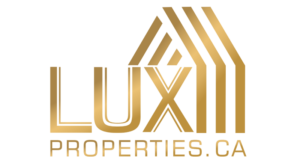Buying Houses in Queen Street Toronto
Buying Houses in Queen Street Toronto offers a unique lifestyle. Queen Street is vibrant and full of character. Homes here come in various styles. From historic townhouses to modern condos, options are plenty. Queen Street is famous for its culture. Art galleries, boutiques, and cafes line the street. Buying Houses in Queen Street Toronto gives access to this dynamic environment. Public transportation is readily available. Commuting across Toronto is easy. Schools and parks are nearby. Families find the area convenient. Young professionals enjoy the nightlife. Artists and creatives thrive here. Real estate value is rising. Investment potential is strong.
Buying Houses in Queen Street Toronto is a smart move. The neighborhood blends old charm with new energy. Local shops add a personal touch. Street festivals bring the community together. Residents enjoy walking-friendly streets. Everything is within reach. Healthcare facilities are close. Grocery stores and restaurants are abundant. Buying Houses in Queen Street Toronto provides both comfort and excitement. Safety and diversity are strong points. Many newcomers choose this location. Property options fit various budgets. Renovated homes are popular. Green spaces offer a break from the city. Dog parks and bike lanes are common.
Queen Street is never dull. There’s always something happening. Buying Houses in Queen Street Toronto means joining a lively community. The area keeps growing in popularity. Long-term residents value the lifestyle. Future buyers should consider this gem. It’s one of Toronto’s most iconic streets. Real estate here remains in demand. The blend of culture and convenience is unmatched. Whether for living or investing, it’s a top pick. Buying Houses in Queen Street Toronto could be your best decision. The charm and energy are truly unmatched. Start your journey here today.
Buying Houses in Queen Street Toronto : Available Types And Prices
Queen Street is one of Toronto’s most vibrant areas. It stretches through several neighborhoods with different vibes. While Queen West is trendy and artsy, Queen East is more residential and quiet. Each section offers something unique. However, both areas attract a variety of homebuyers. First-time buyers, families, and investors all look here. Moreover, the street’s location makes it highly desirable. It offers excellent access to public transit and downtown Toronto. As a result, demand often exceeds supply. That’s why prices tend to stay strong over time. Before buying here, it’s important to understand local options.
Detached Homes on Queen Street
Detached houses on Queen Street are rare. Most homes are older and have historic charm. However, they’re often updated with modern interiors. These homes offer more privacy than condos or townhouses. Usually, they include front and back yards. Some even have private parking spaces. Prices start around $1.5 million. In popular parts like Queen West, prices can go over $2.5 million. These homes often sit on narrow lots. Still, they’re attractive due to their character and location. Since inventory is low, competition can be fierce. Buyers must act fast when listings appear. Despite the cost, demand remains steady.
Semi-Detached Homes and Their Value
Semi-detached homes are more common than detached ones. These homes share one wall with a neighbor. Still, they often have private yards and basements. On Queen Street East, many semi-detached homes are family-friendly. Their prices range from $1.1 million to $1.8 million. Depending on size and renovation status, costs may vary. Some are fully renovated with open-concept layouts. Others may need updates but have strong potential. These homes offer a good balance of space and price. As a result, they appeal to young couples and growing families. While smaller than detached homes, they’re more affordable overall.
Townhouses and Row Homes
Townhouses are common along Queen Street. In particular, row-style homes line the streets in several areas. These homes are attached on both sides. However, many still include private backyards. Townhouses offer multiple floors of living space. As a result, they feel more like houses than condos. Prices typically range from $900,000 to $1.4 million. In newer developments, features may include rooftop patios and garages. Older row homes may need renovations. Nonetheless, they often retain Victorian or Edwardian architecture. Buyers love the blend of historic and modern. These properties are ideal for those who want charm and convenience.
Condominiums in the Queen Street Area
Condos are the most available option here. They exist in low-rise buildings, mid-rises, and even modern towers. Condo prices vary based on location and building age. For example, in Queen West, newer condos can cost $700,000 for a one-bedroom. Two-bedrooms may go for $850,000 or more. Meanwhile, older condos in Queen East might be slightly cheaper. However, they may lack modern amenities. Some buildings offer gyms, party rooms, and rooftop terraces. Moreover, maintenance fees vary from $400 to $900 monthly. While some prefer freehold homes, condos offer affordability and convenience. For many, condos are a great entry point into the market.
Loft-Style Living and Artist Spaces
Queen Street is known for its creative culture. As a result, lofts are especially popular here. These are often converted factories or warehouses. High ceilings, brick walls, and exposed pipes define the style. Lofts offer open-concept layouts and tons of character. Some units span over 1,000 square feet. Prices start at around $850,000. However, designer lofts can exceed $1.5 million. Artists and professionals love these spaces. They combine residential comfort with studio vibes. Furthermore, many loft buildings sit close to art galleries and cafes. Because of their uniqueness, lofts sell quickly. They’re not always available, so buyers must stay alert.
New Developments and Modern Builds
New construction is ongoing along Queen Street. Although land is limited, developers find creative ways to build. Boutique condos and townhouses are popular options. These homes offer energy efficiency and smart-home features. For example, many include EV charging and modern kitchens. Prices for new builds vary widely. One-bedroom pre-construction condos may start at $600,000. However, townhomes or penthouses can go above $2 million. Developers often offer incentives like upgrades or flexible deposits. Still, buying pre-construction carries some risks. Delays are common, and final costs may rise. Nevertheless, new builds appeal to buyers seeking low-maintenance, stylish living.
Investment Opportunities Along Queen Street
Queen Street offers great potential for investors. Rental demand is strong year-round. Tenants include students, artists, and professionals. With Toronto’s growing population, rental prices continue to rise. A one-bedroom condo can rent for $2,500 monthly. Meanwhile, two-bedroom units may fetch over $3,200. Landlords benefit from strong cash flow and capital appreciation. Some investors also choose duplexes or triplexes. These multi-unit homes provide multiple income streams. However, managing tenants requires effort and legal knowledge. Buyers must also budget for repairs and maintenance. Still, Queen Street’s walkability and transit access boost returns. Long-term, property values tend to increase steadily.
Price Trends and Market Dynamics
Home prices on Queen Street have risen over the years. Despite market shifts, the trend remains upward. Demand consistently exceeds supply, especially in desirable pockets. For instance, Queen West homes often attract bidding wars. Meanwhile, Queen East sees more balanced competition. Still, prices are generally higher than Toronto’s average. According to recent data, average home prices here exceed $1 million. This includes all property types, from condos to townhouses. Although market conditions may change, Queen Street holds value. Its culture, location, and amenities keep it in demand. Buyers should monitor trends and act strategically. Timing can impact affordability.
Choosing the Right Home on Queen Street
Finding the right home depends on lifestyle and budget. Families may prefer semi-detached homes with yards. Young professionals might lean toward condos or lofts. Investors often seek rental properties with strong returns. Each home type offers different benefits. Therefore, setting priorities is essential. Some buyers value space and privacy. Others focus on design, walkability, or future growth. Working with a local realtor helps narrow choices. Realtors know current listings, pricing, and market insights. Legal and financial advice is also key. With proper planning, Queen Street can be a great place to buy. Whether east or west, opportunity awaits.
The Legal Process of Buying Houses in Queen Street Toronto
Queen Street is one of Toronto’s most iconic areas. It stretches across diverse neighborhoods with various property types. Because of its vibrant culture and accessibility, the area attracts many homebuyers. However, buying a house here involves careful legal planning. Each step must be completed properly to avoid problems. Although the process is similar across Toronto, Queen Street has specific quirks. For example, zoning and heritage status can affect properties. So it’s important to start with thorough research. Knowing what to expect makes things much smoother.
Hiring a Real Estate Lawyer
A real estate lawyer is essential during any home purchase. They protect your interests and handle complex paperwork. While agents help with offers, lawyers check legal risks. They ensure contracts are fair and enforceable. In Queen Street deals, heritage homes may need extra review. Lawyers verify property ownership and any liens. Additionally, they confirm property boundaries and legal descriptions. Without a lawyer, you may miss critical issues. Because real estate law can be tricky, hiring an expert is smart. Fortunately, Toronto has many qualified professionals. Choose one with experience in urban transactions.
Getting Pre-Approved for a Mortgage
Before you start searching, get pre-approved. This step clarifies your budget and improves your credibility. Sellers prefer buyers with pre-approvals. Although it’s not legally required, it offers strong financial guidance. Mortgage brokers or banks can issue pre-approvals quickly. The lender will examine your income, debt, and credit. Once approved, you receive a letter outlining your limit. However, this isn’t a final mortgage commitment. It’s conditional on property approval and income verification. Still, it helps narrow your search. On Queen Street, prices vary, so knowing your budget saves time. Also, it shows sellers you’re serious.
Reviewing the Agreement of Purchase and Sale
This document outlines the terms of your home purchase. It includes price, closing date, conditions, and more. Once your offer is accepted, your lawyer must review it. Conditions may include financing, inspection, or lawyer approval. Removing these too quickly can be risky. However, too many conditions may weaken your offer. In hot Queen Street markets, clean offers are often preferred. Still, don’t skip legal review. A lawyer ensures clauses protect you legally. Moreover, they check title issues and disclosures. Everything in this contract becomes binding, so accuracy is key. Always understand what you’re signing.
Title Search and Due Diligence
Your lawyer will perform a title search. This checks the property’s legal ownership and rights. They ensure the seller has the right to sell. Additionally, they look for unpaid taxes or mortgages. If a lien exists, it must be cleared before closing. In Queen Street homes, easements are common. These may affect how you use parts of the land. Some properties have heritage designations, limiting renovations. Your lawyer checks city records for such details. Also, zoning laws may impact future plans. Because due diligence prevents costly surprises, never skip this step. It ensures a clean transfer of ownership.
Home Inspections and Legal Implications
Home inspections reveal physical issues in the property. While not legally required, they are strongly recommended. Inspectors look for structural problems, mold, pests, and more. If major issues arise, you can negotiate or walk away. However, your offer must include an inspection clause. Otherwise, exiting the deal can be difficult. On Queen Street, many homes are older. Therefore, inspections often reveal outdated wiring or plumbing. These may affect insurance or mortgage approvals. Also, if repairs are needed, legal adjustments can be made. For example, you may request a price reduction or credit. Your lawyer can help amend the contract.
Securing Final Mortgage Approval
Once your offer is accepted, apply for final mortgage approval. Your lender will appraise the home’s value. If it’s below the purchase price, you may need more cash. Also, the lender checks legal documents before issuing funds. Therefore, your lawyer works with the lender’s legal team. Once approved, you sign mortgage documents. These outline interest rates, payment terms, and penalties. If anything seems unclear, your lawyer should explain. Once signed, you’re legally bound to repay the loan. Additionally, the lender registers a lien against the property. Your lawyer ensures proper registration with Ontario’s land system.
Final Signing and Closing Preparation
A few days before closing, you meet your lawyer. Here, you’ll sign the legal documents. These include the deed, mortgage, and closing statements. You’ll also pay closing costs, which can be 1.5% to 4% of the purchase price. These may include land transfer tax, legal fees, and title insurance. In Toronto, land transfer tax applies at both provincial and municipal levels. First-time buyers may receive rebates. Moreover, your lawyer collects the down payment balance. On closing day, the lawyer pays the seller and registers the deed. Then, ownership officially transfers to you.
Getting the Keys and Possession
Once funds are transferred, your lawyer receives the keys. You can pick them up at their office. However, some sellers leave them in a lockbox. Although the deal is closed, some responsibilities remain. For example, you must switch utility accounts. Also, confirm home insurance starts on closing day. If anything is damaged between signing and possession, notify your lawyer immediately. They can address the issue with the seller’s lawyer. On Queen Street, moving day can be busy. Many buildings have rules about move-in times. So, coordinate early to avoid delays.
Post-Closing Legal Tips
After the purchase, keep all documents safe. These include your deed, mortgage, and receipts. You may need them for taxes or refinancing later. If you plan renovations, check with the city first. Some Queen Street homes have restrictions. For example, heritage homes need special permits. Also, confirm property tax status with the City of Toronto. Your lawyer usually handles the final adjustments. However, follow up to ensure everything is accurate. If any issues arise post-closing, contact your lawyer. Although the legal process ends at closing, questions may arise. Therefore, choose a lawyer who offers post-closing support.


